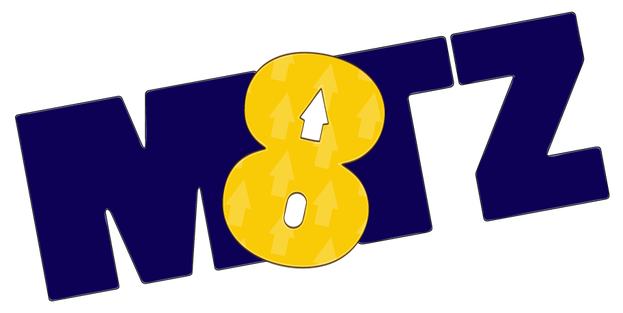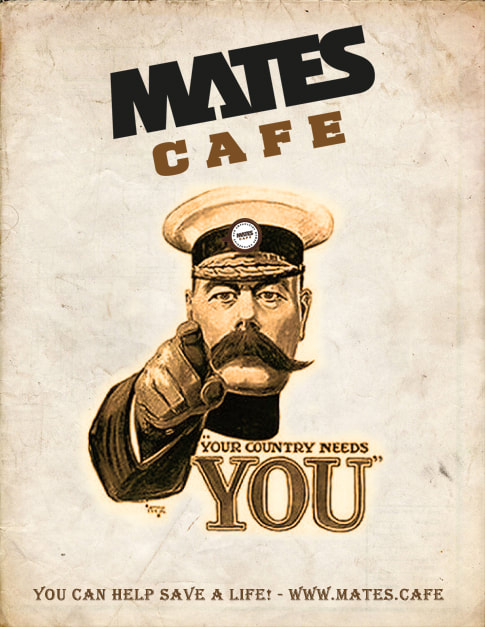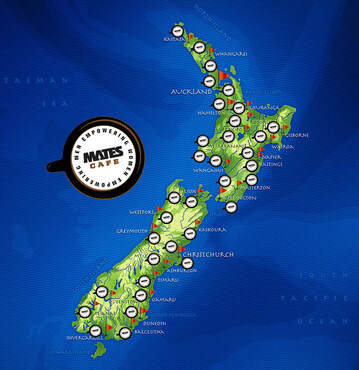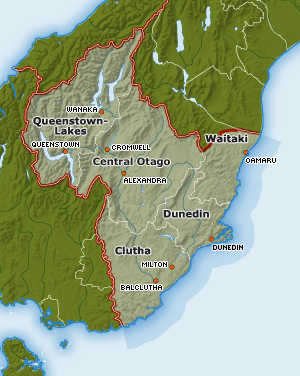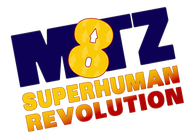You Are Not Alone - MATES Cafe Otago NZ
MATES Cafe is a network of everyday people of all cultures and ethnicity (including teens, elders and lgbt+) who are trained to meet with a person in crisis or isolation at a local cafe, and provide emotional support and encouragement.
MATES Cafe will empower your life so you can in turn empower the lives of others in need.
MATES are here:
To help people of all ages, gender, culture, ethnicity and personal beliefs through the challenges and tough times of life including relationship breakdown, depression, anxiety, loss and grief, bullying, loneliness and isolation. MATES are trained to be there for someone in need and helping them through a point of crisis in their life. It's not about therapy, fixing or giving advice, just simply listening and helping them to find new direction in their life.
Otago NZ - MATES Cafe Network
|
A Call-Out to ALL!
Can You Spare ONE Hour of Your Life to Save a Life? MATES Cafe is purely about saving lives. Do you realise one person completes suicide every 13 hours in New Zealand because they are unable to stand the emotional trauma they are undergoing, often caused by relationship breakdown. Every 4 minutes 1 New Zealander has suicidal thoughts and needs a MATE to turn to. MATES need your help to drastically lower the suicide rate... are you with us? Saving someones life can be to either:
|
Support Services for Otago
LifeLine New Zealand Last updated 06/06/2013 LifeLine is here to listen to the unheard, to empower the caller to retake control of their situation, making callers aware of options rather than offering advice.
This provider offers a national helpline service.
- [email protected]
- (0800) 543 354
- (0800) LIFELINE
- http://www.lifeline.co.nz
- Availability: 24 hours a day, seven days a week.
- Charges: All services free of charge.
- Referrals: No referral required.
This provider offers a national helpline service.
- [email protected]
- (0800) 111 757
- http://www.depression.org.nz
- Availability: Helpline is available 8am to midnight daily. Website is available 24 hours a day, seven days a week.
- Charges: All services free of charge.
- Referrals: No referral required.
Approved Family Violence Provider
- [email protected]
- (03) 466 3220
- (03) 477 1229
- http://www.womensrefuge.org.nz
- Availability: 24 hour, 7 days a week Crisis-line & Crisis Accommodation. Office hours 9am to 3pm
- Charges: Some charges may apply.
- Referrals: No referral required.
- [email protected]
- (0800) 37 66 33
- (03) 477 2461
- http://www.youthline.co.nz
- Availability: Telephone helpline is open 24/7 Office is open 9am - 5pm weekdays Free TXT 234
- Charges: Koha/donation may apply.
- Referrals: No referral required.
- [email protected]
- (0800) VICTIM
- (0800) 842 846
- http://www.victimsupport.org.nz
- Availability: The Victim Support Service is available 24 hours, 7 days a week.
- Charges: All services free of charge.
- Referrals: No referral required.
- [email protected]
- (0800) VICTIM
- (0800) 842 846
- http://www.victimsupport.org.nz
- Availability: The Victim Support Service is available 24 hours, 7 days a week.
- Charges: All services free of charge.
- Referrals: No referral required.
- [email protected]
- (0800) VICTIM
- (0800) 842 846
- http://www.victimsupport.org.nz
- Availability: The Victim Support Service is available 24 hours, 7 days a week.
- Charges: All services free of charge.
- Referrals: No referral required.
- [email protected]
- (0800) VICTIM
- (0800) 842 846
- http://www.victimsupport.org.nz
- Availability: The Victim Support Service is available 24 hours, 7 days a week.
- Charges: All services free of charge.
- Referrals: No referral required.
- [email protected]
- (0800) VICTIM
- (0800) 842 846
- http://www.victimsupport.org.nz
- Availability: The Victim Support Service is available 24 hours, 7 days a week
- Charges: All services free of charge.
- Referrals: No referral required.
Approved Family Violence Provider
- [email protected]
- (03) 441 0009
- (0508) 440 255
- 63 Ballarat Street
- Queenstown
- Availability: Office hours are Mon - Fri 9am-5pm Client Service operates 24 hours, every day, including public holidays
- Charges: Some charges may apply.
- Referrals: No referral required.
Approved Family Violence Provider
- [email protected]
- (03) 474 1592
- http://www.rapecrisisdunedin.org.nz/
- 1st Floor, Corso Building
- 111 Moray Place
- Dunedin
- Availability: 9am to 5pm Monday to Friday
- Charges: All services free of charge.
- Referrals: No referral required.
- [email protected]
- (03) 479 0996
- 7B Union Street
- Dunedin
- Availability: 8am-6pm Monday to Friday.
- Charges: Some charges may apply.
- Referrals: No referral required.
SHINE: Safer Homes In New Zealand Everyday Inc Last updated 04/10/2012 Shine (Safer Homes In New Zealand Everyday) is making homes violence free. Shine offers a free national Helpline and a number of innovative services that work to stop domestic abuse.
This provider offers a national helpline service. Approved Family Violence Provider
- [email protected]
- (0508) 744 633
- (09) 815 4601
- http://www.2shine.org.nz
- Ground Floor
- 409 New North Road
- Kingsland
- Auckland
- Availability: Helpline ( 0508 744 633 ) is answered 9am - 11pm, 7 days a week . Our office hours are 8.30am - 5.00pm weekdays.
- Charges: Some charges may apply.
- Referrals: Referral may apply.
- [email protected]
- (027) 451 4149
- (027) 689 0148
- Availability: By Appointment
- Charges: Some charges may apply.
- Referrals: No referral required.
Approved Family Violence Provider
- [email protected]
- (03) 474 1121
- http://www.stoppingviolencedunedin.org.nz
- 30 Portsmouth Drive
- Dunedin
- Availability: 9am - 5pm, Monday to Friday.
- Charges: Some charges may apply.
- Referrals: No referral required.
Approved Family Violence Provider
- [email protected]
- (03) 477 4670
- (03) 477 4681
- 6 Wolseley Street
- Dunedin
- 9010
- Availability: 9 am - 5pm Monday to Friday.
- Charges: All services free of charge.
- Referrals: No referral required.
- [email protected]
- (03) 455 5973
- (03) 455 1873
- http://www.supportingfamiliesotago.org.nz
- 34 Prince Albert Road
- St Kilda
- Dunedin
- Availability: 8.30am - 4.30pm Monday to Friday.
- Charges: All services free of charge.
- Referrals: No referral required.
- (03) 477 2255
- http://www.oa.org
- Knox Church Annex, Room 4
- 449 George Street
- Dunedin
- Availability: 24 hrs a day via the phoneline. Meetings: Tuesdays 7 p.m. Saturdays 1 p.m.
- Charges: All services free of charge.
- Referrals: No referral required.
Approved Family Violence Provider
- [email protected]
- (03) 441 0009
- (0508) 440 255
- 63 Ballarat Street
- Queenstown
- Availability: Office hours are Mon - Fri 9am-5pm Client Service operates 24 hours, every day, including public holidays
- Charges: Some charges may apply.
- Referrals: No referral required.
- [email protected]
- (03) 477 8090
- http://www.stop.org.nz
- Ground Floor, John Wickliffe House
- 265 Princess Street
- Dunedin
- 9016
- Availability: Phones are not manned every day, please leave a message on answer phone or if urgent, contact the Christchurch office (03) 374 5010 .
- Charges: All services free of charge.
- Referrals: Referral may apply.
Approved Family Violence Provider
- [email protected]
- (03) 477 3403
- http://www.cathsocialservices.org.nz
- Level 6, Consultancy House
- 7 Bond Street
- Dunedin
- Availability: Monday - Friday 9:00am - 5:00pm.
- Charges: Some charges may apply.
- Referrals: No referral required.
Need Further Support - Click Here
Information about Otago
Number of people counted
Total population
- 193,800 people usually live in Otago Region. This is an increase of 12,258 people, or 6.8 percent, since the 2001 Census.
- Its population ranks 7th in size out of the 16 regions in New Zealand.
- Otago Region has 4.8 percent of New Zealand's population.
- Male 94,734 1,965,618
- Female 99,069 2,062,326
- Total 193,803 4,027,947
- 12,273 Māori usually live in Otago Region, an increase of 1,728 people, or 16.4 percent, since the 2001 Census.
- Its Māori population ranks 11th in size out of the 16 regions in New Zealand.
- 2.2 percent of New Zealand's Māori population usually live in Otago Region.
- Male 6,186 274,860
- Female 6,084 290,469
- Total 12,270 565,326
Number of dwellings counted
- There are 75,909 occupied dwellings and 12,030 unoccupied dwellings in Otago Region.
- For New Zealand as a whole, there are 1,478,709 occupied dwellings and 159,273 unoccupied dwellings.
- There are 813 dwellings under construction in Otago Region, compared with 13,557 under construction throughout New Zealand.
- Occupied Private dwelling 75,231 1,471,746
- Non-private dwelling 678 6,963
- Total 75,909 1,478,709
- Unoccupied 12,030 159,273
- Under construction 813 13,557
- Total 88,752 1,651,542
Otago Region
Otago ( /ɵˈtɑːɡoʊ/; local pronunciation: [əˈtaːɡɐʉ] (listen)) is a region of New Zealand in the south of the South Island. The region covers an area of approximately 32,000 square kilometres (12,000 sq mi)[2] making it the country's third largest region. The population of Otago is 209,900 from the June 2011 estimate.[1]
The name "Otago" is an old southern Maori word whose North Island dialect equivalent is "Otakou", introduced to the south by Europeans in the 1840s.[3] The exact meaning of the term is disputed, with common translations being "isolated village" and "place of red earth", the latter referring to the reddish-ochre clay which is common in the area around Dunedin. "Otago" is also the old name of the European settlement on the Otago Harbour, established by the Weller Brothers in 1831. The place later became the focus of the Otago Association, an offshoot of the Free Church of Scotland, notable for its high-minded adoption of the principle that ordinary people, not the landowner, should choose the ministers.
Major centres of what is now the Otago Region of the old province include Dunedin (the principal city of the region), Oamaru (made famous by Janet Frame), Balclutha, Alexandra, and the major tourist centres Queenstown and Wanaka. Kaitangata in South Otago is a prominent source of coal. The Waitaki and Clutha rivers also provide much of the country's hydroelectric power. Some parts of the area originally covered by Otago Province are now administered as part of Southland Region.
New Zealand's first university, The University of Otago, was founded in 1869 as the provincial university in Dunedin.
The Central Otago wine area produces award winning wines made from varieties such as the Pinot Noir, Chardonnay, Sauvignon Blanc, Merlot, and Riesling grapes. Central Otago has an increasing reputation as New Zealand’s leading pinot noir region.[4]
The region is administered by the Otago Regional Council.
History Main article: History of Otago The Otago settlement, an outgrowth of the Free Church of Scotland, materialised in March 1848 with the arrival of the first two immigrant ships from Greenock on the Firth of Clyde -- the John Wickliffe and the Philip Laing. Captain William Cargill, a veteran of the Peninsular War, was the secular leader: Otago citizens subsequently elected him to the office of provincial Superintendent after the provinces were created in 1852. The Otago Province was the whole of New Zealand from the Waitaki river south, including Stewart Island and the sub-Antarctic islands. It included the territory of the later Southland province and also the much more extensive lands of the modern Southland Region.
Initial settlement was concentrated on the port and city, then expanded, notably to the south-west, where the fertile Taieri Plains offered good farmland. The 1860s saw rapid commercial expansion after Gabriel Read discovered gold at Gabriel's Gully near Lawrence, and the Central Otago goldrush ensued. Veterans of goldfields in California and Australia, plus many other fortune-seekers from Europe, North America and China, poured into the then Province of Otago, eroding its Scottish Presbyterian character. Further gold discoveries at Clyde and on the Arrow River round Arrowtown led to a boom, and Otago became for a period the cultural and economic centre of New Zealand. New Zealand's first daily newspaper, the Otago Daily Times, originally edited by Julius Vogel, dates from this period.
The Province of Southland separated from Otago Province and set up its own Provincial Council at Invercargill in 1861. After difficulties ensued, Otago re-absorbed it in 1870. Its territory is included in the southern region of the old Otago Province which is named after it and is now the territory of the Southland region.
The provincial governments were abolished in 1876 when the Abolition of the Provinces Act came into force on 1 Nov 1876,[5] and were replaced by other forms of local authority, including counties. Two in Otago were named after the Scottish independence heroes Wallace and Bruce. From this time the national limelight gradually shifted northwards.
Economy The sub-national GDP of the Otago region was estimated at US$5.411 billion in 2003, 4% of New Zealand's national GDP.[6]
Geography A map showing population density in the Otago Region at the 2006 census. Flag of the Otago Regional Council. Beginning in the west, the geography of Otago consists of high alpine mountains. The highest peak in Otago is Mount Aspiring/Tititea, which is on the Main Divide. From the high mountains the rivers discharge into large glacial lakes. In this part of Otago glacial activity - both recent and very old - dominates the landscape, with large 'U' shaped valleys and rivers which have high sediment loads. River flows also vary dramatically, with large flood flows occurring after heavy rain. Lakes Wakatipu, Wanaka and Hawea form the sources of the Clutha, the largest river (by discharge) in New Zealand. The Clutha flows through Otago and discharges near Balclutha.
Travelling east from the mountains, the Central Otago drylands predominate. These are Canterbury-Otago tussock grasslands dominated by the block mountains, upthrust schist mountains. In contrast to Canterbury, where the Northwest winds blow across the plains without interruption, in Otago the block mountains impede and dilute the effects of the Nor'wester.
The main Central Otago centres, such as Alexandra and Cromwell, are found in the intermontane basins between the block mountains. The schist bedrock influence extends to the eastern part of Otago, where remnant volcanics mark its edge. The remains of the most spectacular of these are the Miocene volcanics centred on Otago Harbour. Elsewhere, basalt outcrops can be found along the coast and at other sites.
In the southeastern corner of Otago lies The Catlins, an area of rough hill country which geologically forms part of the Murihiku terrane, an accretion which extends inland through the Hokonui Hills in the Southland Region. This itself forms part of a larger system known as the Southland Syncline, which links to similar formations in Nelson (offset by the Alpine Fault) and even in New Caledonia, 3,500 km (2,200 mi) away.[7] The Catlins ranges are strike ridges composed of Triassic and Jurassic sandstones, mudstones and other related sedimentary rocks, often with a high incidence of feldspar. Fossils of the late and middle Triassic Warepan and Kaihikuan stages are found in the area.
Climate Weather conditions vary enormously across Otago, but can be broken into two broad types: the coastal climate of the coastal regions and the more continental climate of the interior.
Coastal regions of Otago are subject to the alternating warm and dry/cool and wet weather patterns common to the interannual Southern oscillation. The Southern Hemisphere storm track produces an irregular short cycle of weather which repeats roughly every week, with three or four days of fine weather followed by three or four days of cooler, damp conditions. Drier conditions are often the result of the northwesterly föhn wind, which dries as it crosses the Southern Alps. Wetter air is the result of approaching low-pressure systems which sweep fronts over the country from the southwest. A common variant in this pattern is the centring of a stationary low-pressure zone to the southeast of the country, resulting in long-lasting cool, wet conditions. These have been responsible for several notable historical floods, such as the "hundred year floods" of October 1878 and October 1978.
Typically, winters are cool and wet in the extreme south areas and Snow can fall and settle to sea level in winter, especially in the hills and plains of South Otago. More Central and Northern Coastal areas winter is sunnier and drier. Summers, by contrast, tend to be warm and dry, with temperatures often reaching the high 20s and low 30s Celsius.
In Central Otago cold frosty winters are succeeded by hot dry summers. Central Otago's climate is the closest approximation to a continental climate anywhere in New Zealand. This climate is part of the reason why Central Otago vineyards are successful growing is this region. This inland region is one of the driest regions in the country, sheltered from prevailing rain-bearing weather conditions by the high mountains to the west and hills of the south. Summers can be hot, with temperatures often approaching or exceeding 30 degrees Celsius; winters, by contrast, are often bitterly cold - the township of Ophir in Central Otago holds the New Zealand record for lowest temperature with a reading of -21.6 °C on 3 July 1995.
Population The population of Otago is 209,900, which is approximately 4.8 percent of New Zealand’s total population of 4.4 million. About 56.1 percent of the population resides in the Dunedin urban area—the region’s main city and the country’s sixth largest urban area. For historical and geographical reasons, Dunedin is usually regarded as one of New Zealand's four main centres. Unlike other southern centres, Dunedin’s population has not declined since the 1970s due to the presence of the University of Otago especially its medical school which attracts students from all over New Zealand and overseas.[8]
Other significant urban centres in Otago with populations over 1,000 include: Queenstown, Oamaru, Wanaka, Cromwell, Alexandra, Balclutha, Milton and Mosgiel. Between 1996 and 2006, the population of the Queenstown Lakes District grew by 60% due to the region’s booming tourism industry.[9]
Approximately 80% of the region’s population is of European lineage with the majority being of Scottish stock—the descendants of early Scottish settlers from the early 19th century. Maori comprise approximately 7% of the population with a large proportion being from the Ngāi Tahu iwi or tribe. Other significant ethnic minorities include Asians, Pacific Islanders, Africans, Latin Americans and Middle Easterners.[10]
Politics Representation Otago is divided into four parliamentary electorates with the city of Dunedin comprising two of these. The Dunedin North electorate is held by Pete Hodgson while the Dunedin South electorate is occupied by Clare Curran. Both MPs are members of the opposition Labour Party while Dunedin has traditionally been a Labour stronghold.
Since 2008, the former electorate of Otago has been split and merged into the large rural electorates of Waitaki which also includes some of the neighbouring Canterbury Region, and the Clutha-Southland electorate, which also includes most of the rural part of the neighbouring Southland Region. The Waitaki electorate has traditionally been a National Party stronghold and is currently held by Jacqui Dean. The Clutha-Southland electorate, also a National Party stronghold, is currently held by Deputy Prime Minister Bill English.
Under the Māori seats system, Otago is also part of the large Te Tai Tonga electorate, which covers the entire South Island and surrounding islands. This is currently held by Māori Party MP Rahui Katene.
Administration The seat of the Otago Regional Council is in Dunedin. There are five territorial authorities in the Otago region:
Realizing our full human potential... Imagine what we can achieve together!
M8TZ - Recreating Community: Worldwide | New Zealand | Australia | United States | United Kingdom | China | Canada | India
Refer Someone | Consultations | Contact M8TZ Cafe: | Policies | © MATES 2023 All rights reserved.
Refer Someone | Consultations | Contact M8TZ Cafe: | Policies | © MATES 2023 All rights reserved.
